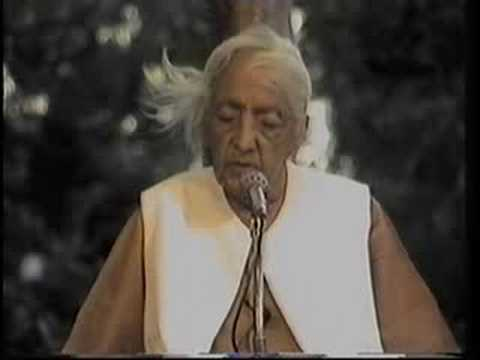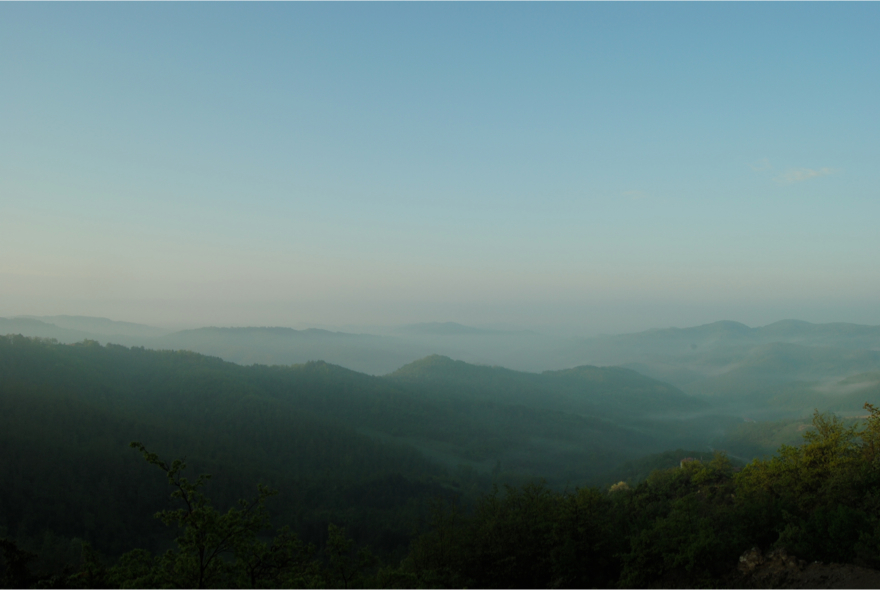J.Krishnamurti.
Truth is a pathless land
The story of mankind is in you, the vast experience, the deep-rooted fears, anxieties, sorrow, pleasure and all the beliefs that man has accumulated throughout the millenia. You are that book. It is not printed by any publisher; it is not for sale. You can't go to any analyst because his book is the same as yours. And without reading that book carefully, patiently, hesitantly, you will never be able to change the society in which we live, the society that is corrupt, immoral. There is a great deal of poverty, injustice, and so on. Any serious man would be concerned with this things as they are in this word at present, with all the chaos, corruption, war - the greatest crime is the war.

In order to bring about a radical change in our society and its structure, one must be able to read this book which is oneself, and the society in which we live is brought about by each one of us, by our parents, granparents, and so on.
All human beings have created this society, and when the society is not changed there will be more corruption, more wars and more destruction of the human mind.
So, to read this book that is oneself, one must have the art of listening to what the book is saying. To listen implies not to interpret what the book is saying. Just observe it as you would observe a cloud. You can't do anything about the cloud, or the palm leaves swaying in the wind, or the beauty of the sunset; you can't alter it. So one must have the art of listening to what the book is saying. The book is you; it will reveal everything.
(from 'The book of life' published by Krishnamurti Foundation, India)
Krishnamurti discussed, for over 60 years until his death in 1986, love, death, religion, meditation, sorrow; all the fundamental issues of life. Unceasingly he pointed out the real possibility of ending sorrow and all conflict, both in the world around us and within us.
He maintained that there is no separation between the outer and the inner, between thought and the manifestations of thought as society, between the "individual" and humanity as a whole. Thus the resolution of human problems lies in self enquiry, which, as it brings about transformation in the mind, naturally will bring about a transformation in society.
To undertake this inner journey implies observation of oneself; an observation which is balanced, penetrating and deeply honest. One has to be aware of, for example, violence at the moment it arises. Justification, condemnation, analysis, all reactions to it are merely forms of escape, and as such they distort the clarity of observation. Such awareness does not choose its object; it is not limited by what one might want to see, not diverted by any disturbance. To use Krishnamurti's own words, it is a "choiceless awareness".
Krishnamurti's many public talks, his dialogues with various public figures and private individuals have been recorded and widely published as books, tapes, CDs, DVDs; so it is possible to go to the well-spring, the source of "the teachings" directly. Krishnamurti insisted that there are no authorities when it comes to these teachings, no interpretations of them. And that he himself should never be put in the position of authority – he constantly denied the role of "Guru".
Information:
Krishnamurti Foundation Trust - England.
Kinfonet.org - an international website informing about krishnamurti related activities.
All Krishnamurti published works
575 video available on YouTube with Krishnamurti's talks and discussions.
The Core of the Teachings

Written by Krishnamurti in 1980 at the request of his biographer Mary Lutyens.
The core of Krishnamurti’s teaching is contained in the statement he made in 1929 when he said, “Truth is a pathless land”. Man cannot come to it through any organization, through any creed, through any dogma, priest or ritual, not through any philosophical knowledge or psychological technique. He has to find it through the mirror of relationship, through the understanding of the contents of his own mind, through observation and not through intellectual analysis or introspective dissection.
Man has built in himself images as a fence of security—religious, political, personal. These manifest as symbols, ideas, beliefs. The burden of these images dominates man’s thinking, his relationships, and his daily life. These images are the causes of our problems for they divide man from man. His perception of life is shaped by the concepts already established in his mind. The content of his consciousness is his entire existence. The individuality is the name, the form and superficial culture he acquires from tradition and environment. The uniqueness of man does not lie in the superficial but in complete freedom from the content of his consciousness, which is common to all humanity. So he is not an individual.
Freedom is not a reaction; freedom is not choice. It is man’s pretence that because he has choice he is free. Freedom is pure observation without direction, without fear of punishment and reward. Freedom is without motive; freedom is not at the end of the evolution of man but lies in the first step of his existence. In observation one begins to discover the lack of freedom. Freedom is found in the choiceless awareness of our daily existence and activity.
Thought is time. Thought is born of experience and knowledge, which are inseparable from time and the past. Time is the psychological enemy of man. Our action is based on knowledge and therefore time, so man is always a slave to the past. Thought is ever limited and so we live in constant conflict and struggle. There is no psychological evolution. When man becomes aware of the movement of his own thoughts, he will see the division between the thinker and thought, the observer and the observed, the experiencer and the experience. He will discover that this division is an illusion. Then only is there pure observation which is insight without any shadow of the past or of time. This timeless insight brings about a deep, radical mutation in the mind.
Total negation is the essence of the positive. When there is negation of all those things that thought has brought about psychologically, only then is there love, which is compassion and intelligence.

